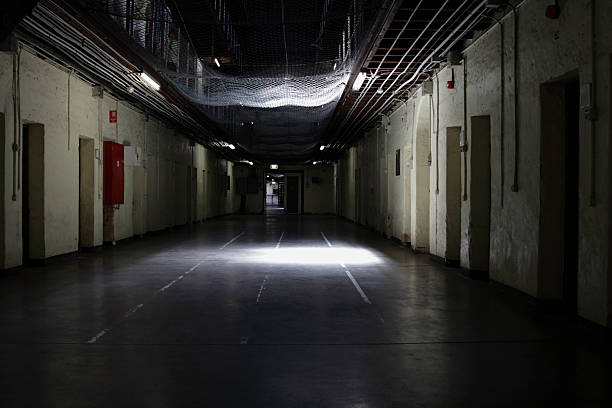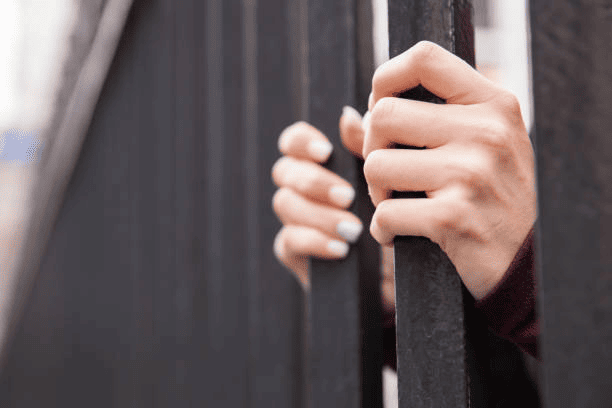Sydney, the vibrant capital of New South Wales (NSW), is not only known for its iconic landmarks but also for its network of correctional facilities. These jails in Sydney play a pivotal role in the state’s criminal justice system, serving various functions from detaining convicted individuals to rehabilitating them before reintegration into society.
This article dives deep into the workings of jails or state penitentiary jails in Sydney, highlighting their importance in Australian history, the challenges they face, and the rehabilitation programs they offer. Additionally, we discuss the essential role of legal representation in navigating the complexities associated with correctional facilities.
The Role of Jails in Sydney
Jails in Sydney are integral for maintaining public safety and administering justice. Men and women’s prisons ensure that individuals convicted of crimes serve their sentences in a secure environment. Beyond mere detention, jails in Sydney are also centres for rehabilitation, aiming to prepare inmates for a successful return to society through various programs.
Even aboriginal people were arrested for offences such assaults, murders and spearing cattle on the colonial frontier, and for a range of other crimes as they tried to adjust to life under colonial rule. Want to peek into Sydney’s Prison Past? Here’s what you can (and can’t) do:
Long Bay & Parramatta Correctional Centres: These historic prisons are still operational, so unfortunately, no tours are available. However, you can still admire their imposing structures from a distance.
Darlinghurst Gaol: This former prison, conveniently located near the city center, offers a fascinating glimpse into Sydney’s correctional past. Today, it’s a vibrant Art School, so tours might not be prison-focused, but it’s a unique spot to explore.
Click here to read prison related articles by the Sydney Morning Herald.
Types of Correctional Facilities in Sydney
Sydney’s correctional system is diverse, comprising several types of facilities, including maximum, medium, and minimum security prisons. Each is designed to cater to inmates with different security needs and rehabilitation requirements.
For instance, the Silverwater Correctional Complex and Long Bay Correctional Centre are among the most well-known jails in Sydney, each playing a crucial role in the NSW correctional landscape.
Focus on Rehabilitation
A key objective of jails in Sydney is to rehabilitate inmates, providing them with the skills and knowledge needed to reintegrate into society successfully. Programs offered include educational courses, vocational training, and psychological counselling, all tailored to address the root causes of criminal behaviour and reduce the likelihood of reoffending.
Challenges Facing Jails in Sydney
Despite their critical role, jails in Sydney face numerous challenges. Overcrowding remains a significant issue, impacting the ability of these facilities to offer effective rehabilitation programs. Additionally, mental health issues among inmates pose a considerable challenge, requiring jails to provide adequate psychological support and healthcare services.
Legal Representation and Support
The complexity of the criminal justice system underscores the importance of having professional legal representation, especially for individuals dealing with incarceration or legal issues related to jails in Sydney. Legal professionals can provide invaluable guidance, ensuring that the rights of those involved with the correctional system are protected.

Rehabilitation and Beyond: Programs in Sydney’s Jails
Jails in Sydney are dedicated to more than just containment; they actively work towards rehabilitating inmates. This commitment is evident in the variety of programs they offer, aimed at fostering personal development and reducing the likelihood of reoffending. Here’s a closer look at the holistic approach these facilities take towards rehabilitation:
- Educational Programs
- Basic Education: Courses aimed at improving literacy and numeracy skills, enabling inmates to achieve a basic level of education.
- Secondary Education: Opportunities for inmates to complete their High School Certificate or equivalent, preparing them for further education or vocational training.
- Tertiary Education: Access to tertiary education courses, including university-level studies, through distance learning programs.
- Vocational Training:
- Trade Skills: Training in various trades, such as carpentry, plumbing, and electrical work, providing inmates with qualifications and skills that are in demand in the workforce.
- Information Technology: Courses in computer skills and information technology, preparing inmates for modern job markets.
- Hospitality and Culinary Arts: Training in cooking, catering, and hospitality, offering paths to employment in these industries.
Other Programs
- Behavioural and Therapeutic Programs:
- Anger Management: Prison reform programs designed to help inmates understand and control anger, improving their interpersonal relationships and decision-making.
- Substance Abuse Programs: Treatment and education programs focused on overcoming addiction and understanding the impact of substance abuse on one’s life and health.
- Mental Health Support: Access to psychological counselling and support groups, addressing mental health issues and enhancing emotional well-being.
- Life Skills Training:
- Financial Literacy: Teaching inmates in a debtors prison how to manage finances, budget, and plan for the future, crucial skills for reintegration into society.
- Parenting Programs: Courses that help inmate parents develop better parenting skills, aiming to strengthen family bonds and support child development.
- Social Skills Development: Programs that enhance social interaction abilities, conflict resolution, and community engagement, preparing inmates for societal re-entry. This applies to both men and women’s prison system.
Success Stories and Challenges
While there are many success stories of rehabilitation from jails in Sydney, challenges remain. Tailoring programs to meet individual needs and ensuring that inmates have continued support upon release are critical for long-term success. The impact of these programs is an area of ongoing study and refinement.
Navigating the Legal Landscape: The Role of Legal Assistance
For those facing charges or currently incarcerated, navigating the legal system can be daunting. This is where the expertise of legal professionals becomes crucial. They can offer guidance on a wide range of issues, from understanding charges and navigating trial proceedings to appealing convictions and seeking parole.
How Legal Professionals Can Help
Legal professionals specialising in criminal law can provide critical support and advice, ensuring that individuals receive fair treatment within the justice system. They can assist with case preparation, representation in court, and advice on legal rights and options, making a significant difference in the outcomes of legal proceedings.
Stepping Forward: Reintegration and Support After Release
The journey of inmates from jails in Sydney back into society is a critical phase of the correctional process. Support services, including housing assistance, job training, and continued psychological counselling, are vital for successful reintegration. These services help former inmates navigate the challenges of returning to society and contribute positively.
The Importance of Ongoing Support
The transition from incarceration to freedom can be challenging. Ongoing support services are essential in ensuring that individuals do not revert to criminal behaviour. Community programs and support networks play a significant role in this process, highlighting the importance of a comprehensive approach to rehabilitation and reintegration.

Embracing a New Chapter
In closing, the role of jails in Sydney in the NSW criminal justice system is multifaceted, extending beyond incarceration to include rehabilitation and reintegration into society. The challenges faced by these facilities are significant, yet they are essential in maintaining public safety and offering convicted individuals a chance for redemption.
As society continues to evolve, so too does the approach to correctional practices in Sydney (Corrective Services NSW). By focusing on rehabilitation and support, jails in Sydney aim to reduce recidivism and help individuals lead productive, crime-free lives.
For those facing legal challenges related to jails in Sydney, or seeking to understand their rights and options within the criminal justice system, JB Solicitors stands ready to offer expert legal guidance and support.
Contact us today to learn how we can assist you with your legal needs, ensuring you receive the best possible outcome in your circumstances.
